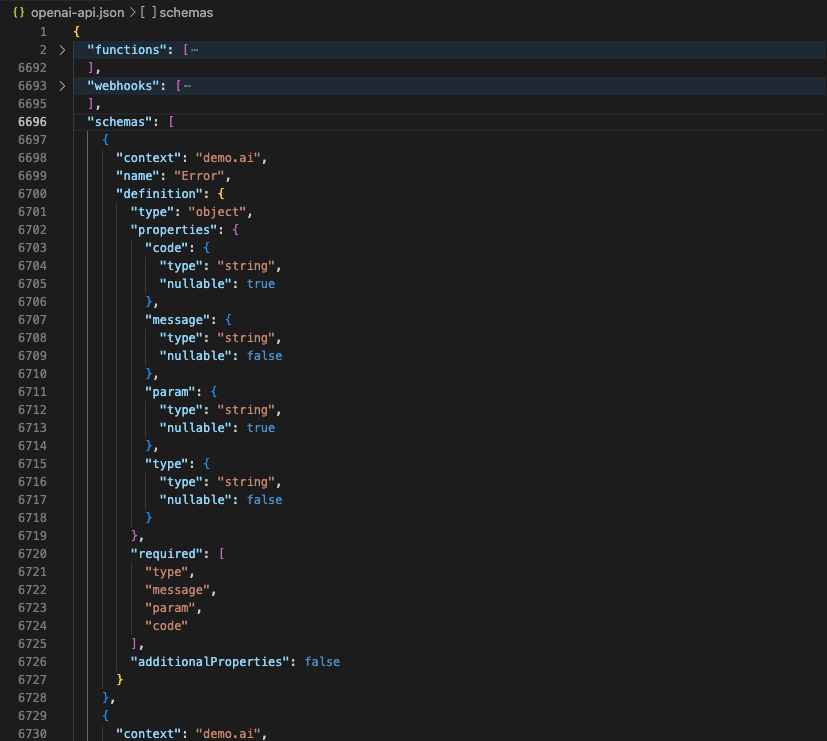Developing APIs often involves managing shared resource types that are repeatedly defined across multiple endpoints. Without an efficient mechanism to streamline these definitions, the process becomes redundant, error-prone, and labor-intensive. PolyAPI addresses this challenge with its latest release, introducing reusable schema models that enhance maintainability and type consistency. This update transforms how API developers manage resource types, making it easier to build robust and scalable services.
The Need for Reusable Schema Models
In earlier iterations of PolyAPI, every API and server function required a unique specification for resource types it accepted or returned. This approach meant developers often duplicated definitions, leading to significant inefficiencies. For example, if an application frequently utilized a User resource, the User type definition had to be replicated across multiple endpoints. Any updates to the User schema required meticulous, manual adjustments in every instance—a process fraught with potential errors and inconsistencies.
These challenges not only slowed down development but also increased the risk of outdated or mismatched type definitions within the same application. Ensuring uniformity across APIs demanded additional oversight, detracting from time that could be spent building new features or enhancing performance.
PolyAPI’s reusable schema models eliminate this bottleneck, offering a streamlined approach to resource type management. By enabling developers to create centralized, reusable definitions, the platform ensures consistency, reduces redundancy, and simplifies maintenance.
Introducing x-poly-ref and poly.schemas
The cornerstone of PolyAPI’s reusable schema models is the introduction of the x-poly-ref property and the poly.schemas namespace. These tools empower developers to reference shared resource types directly within their APIs, without duplicating definitions.
Practical Application in TypeScript
The power of reusable schema models becomes evident when used in TypeScript environments. Developers can directly access schemas via the poly.schemas namespace, ensuring consistent and type-safe integrations. Below is an example showcasing how the latest PolyAPI Node client leverages reusable schemas for an AI chat function:
import poly, { schemas, vari } from "polyapi";
async function wrappedAIChat({ message }: { message: string }): Promise<schemas.demo.ai.ChatCompletionResponse> {
return poly.demo.ai.CreateChatCompletion({
bearerToken: vari.demo.ai.AIApiKey.get(),
body: {
model: "gpt-4o",
messages: [
{ role: "system", content: vari.demo.ai.ChatSystemMessage.get() },
{ role: "user", content: message }
]
}
});
}
In this example:
schemas.demo.ai.ChatCompletionResponse: Ensures the function adheres to the defined schema for chat completion responses, providing robust type safety.- Centralized Schema Access: The
schemasobject pulls reusable definitions from the PolyAPI client, ensuring consistency across all references in the project. - Dynamic Inputs: The
messageinput is seamlessly integrated into the reusable schema model, minimizing redundancy and promoting clarity.
This approach not only saves time but also reduces the likelihood of mismatches between API specifications and implementation. Developers can confidently reuse schemas, knowing they align with the broader API architecture.
Automatic Schema Detection
PolyAPI’s latest Node client takes reusable schemas a step further by automating the detection of shared resources during training. When training a set of API endpoints via OpenAPI specifications, the platform identifies common resource types and generates schemas for them. These schemas are then stored centrally and made available for reuse across the application.
This automation reduces manual effort, allowing developers to focus on building features rather than managing resource definitions. It also enhances type safety, as the automatically generated schemas are consistent and accurate.
Benefits of Automatic Detection:
- Reduced Manual Effort: Developers no longer need to manually extract and define shared resources.
- Consistency Across APIs: Automatically generated schemas ensure that all endpoints referencing a shared resource use the same definition.
- Improved Type Safety: Centralized schemas minimize the risk of mismatched or incomplete definitions, leading to more reliable integrations.
Building Robust APIs with PolyAPI
Reusable schema models represent a significant leap forward in API development, enabling developers to manage resource types with precision and efficiency. With tools like x-poly-ref, the poly.schemas namespace, and automatic schema detection, PolyAPI simplifies the process of building and maintaining complex APIs.
By reducing redundancy, enhancing type safety, and automating schema management, PolyAPI empowers developers to focus on delivering high-quality integrations and services. These innovations ensure that API-driven applications remain agile, scalable, and resilient in the face of evolving requirements.
Reusable schema models aren’t just a feature—they’re a foundation for modern API development, enabling teams to build with confidence and deliver exceptional results.
Let us show you how this works for your team.
Screenshots

